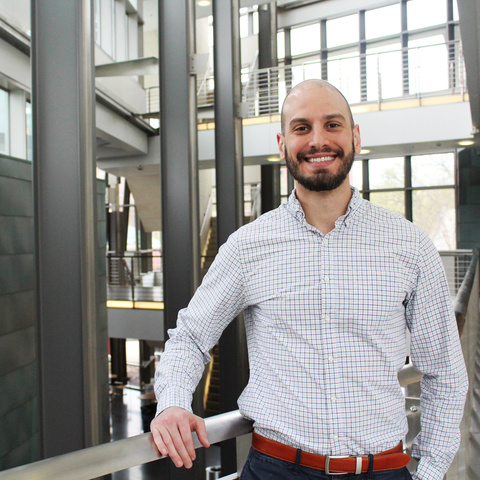
Residency Match: McGaw Medical Center of Northwestern University
Specialty: Neurology
How did you choose your specialty?
I started college as a saxophone performance major, quickly realizing music wasn’t meant to be my profession. After leaving music school, I went through an intense period of introspection. Part of this process was developing a daily meditation practice, which led to a burgeoning interest in consciousness and its neurological underpinnings. After some time of being an undeclared major, I switched to neurobiology and started getting involved in psychology/neurology research that utilized various imaging modalities.
Before medical school I worked for Dr. Kristin Swanson’s mathematical neuro-oncology lab at Northwestern (she has since moved to the Mayo Clinic in Arizona), which exposed me to neuro-oncology for the first time. Entering medical school, however, I thought I would end up in psychiatry. After clinical rotations (and brief love affairs with everything from surgery to obstetric and gynecologic care) it became clear that during every rotation I was most interested in patients with neurologic symptoms. I would spend time reading about them after hours.
To me, there is nothing more interesting than the organ that controls our entire body and is the seat of consciousness. Knowledge of (neuro-)anatomy is essential and the neurologic physical exam actually matters in clinical practice. There are so many opportunities in the growing field of neurology. Although I will most likely end up in neuro-oncology, I am thrilled to learn more about each of the subspecialties!
What experiences outside the curriculum greatly enhanced your medical education?
Among the most powerful were personal interactions with my peers. Upon matriculating into medical school, I had no idea that my class would include such a diverse group of people. As someone who went through some harrowing experiences getting to this point, I didn’t know whether or not that would be met with support or not.
Although most of my classmates haven’t had the same experiences as me, each person ultimately brings a unique perspective to life (not unlike the many patients I have and will encounter). Discussions concerning hypothetical ethical dilemmas in medicine, current events, or even differences in how we were raised provided so much depth to the journey that is medical school. Each and every one of my peers has provided me with invaluable perspective and I will be forever grateful for that.
Is there someone who was especially helpful in guiding and mentoring you?
Two people come to mind. The first is Kathi Muhlenbruck, director of admissions at Carver. As an undergraduate student with a less-than-stellar academic career, I met with Kathi, told her my story, and asked what I could do to give myself a chance to get in to medical school. My undergraduate adviser told me to give up on medicine and find something else to do. But Kathi saw something in me that I’m sure I didn’t even see in myself. She listened, gave me advice about what I could do academically to improve my resume, and she believed in me. While I am elated to be returning to Chicago, I will miss her dearly and will undoubtedly keep in touch with her.
The other person who impacted my development during medical school is Dr. Lauris Kaldjian. He gives our ethics lectures as part of the curriculum, but I also had small elective groups with him and met with him many times individually to discuss an (unrealized) humanities project I was going to pursue. Although his professional journey was very different than mine, there has been no individual that I admire more for their character and demeanor. Not only have I learned bioethical theories from him, but he has served and will continue to serve as an example of the type of man and physician that I aspire to be.
What was the most rewarding part of your Carver College of Medicine experience?
At the risk of being repetitive, the most rewarding part of my Carver experience was the people who shared my journey. I could certainly talk about the formative patient encounters (and there were many) or the countless facts I crammed into my brain, but I don’t think I would have made it through medical school if it weren’t for the friendships forged along the way.
These are people with whom I have formed what I am sure will be lifelong friendships and I am honored to have grown alongside them during this process. I also feel compelled to say that this indoctrination process (from the classroom and even more so in the clinic) has been incredibly profound. I am humbled to be entering the medical profession and working with patients who are allowing me into their most personal experiences. Thank you to all those individuals who allowed a growing medical student to learn from you.
What advice would you give to incoming medical students?
I would say enjoy the hills and the valleys. There will be highs and lows and days you don’t understand why you are putting yourself through such a rigorous process when you could have gotten a computer science degree and been drinking $8 lattes as you work from home.
In all seriousness though, enjoy it. Nothing is as big a deal as it seems in the moment (yes, even Step 1). Take this time to learn as much as you can, develop deep relationships with classmates, and cherish the greatest teachers we have: our patients. Pace yourself and work hard, but work smart. Enjoy your time at Carver. It is a truly special place to train.